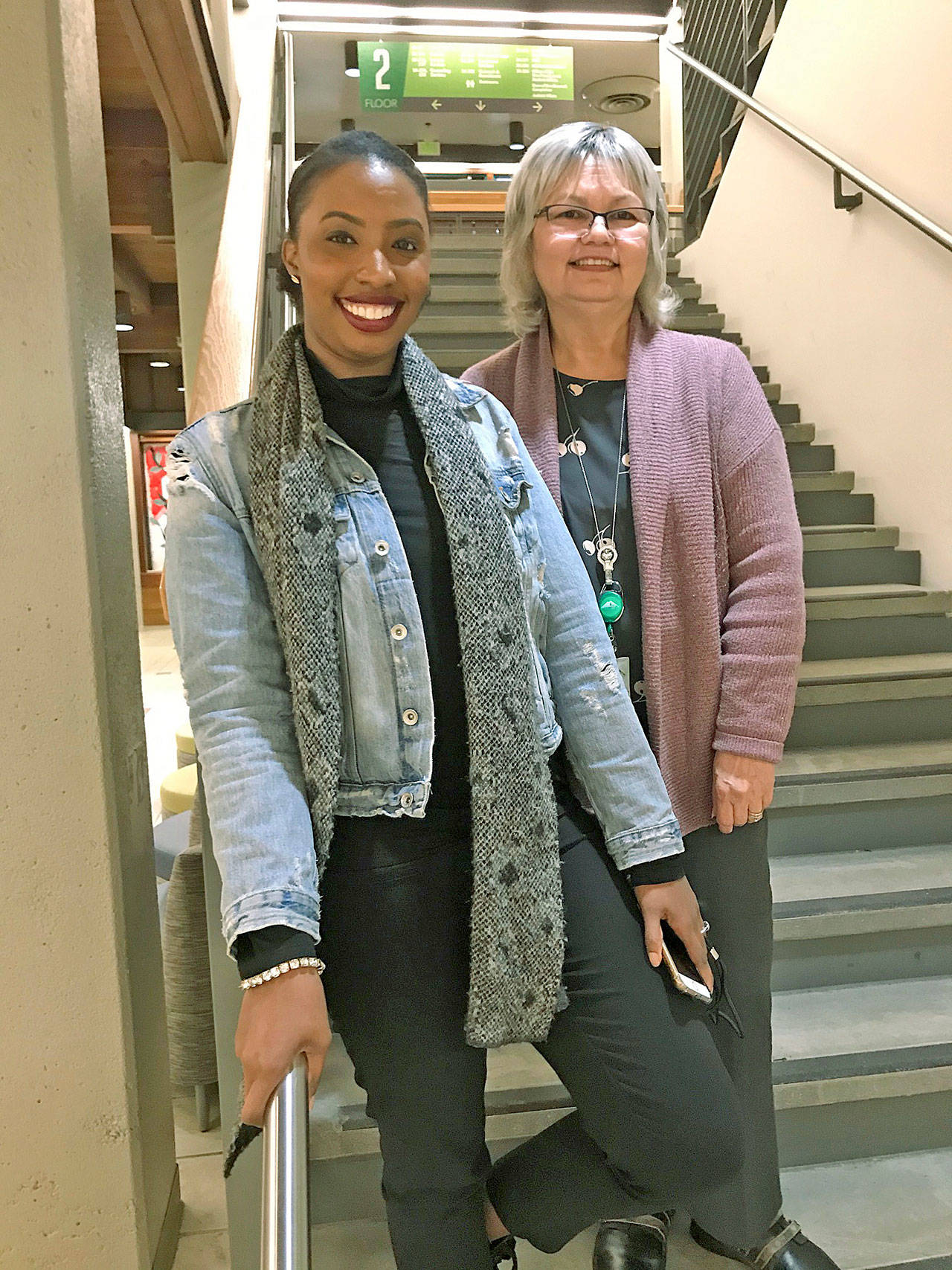For many low-income college students, the continuation and success of their education hinges on the availability of affordable child care.
Aware of that dilemma, student services and advisory leaders at Green River College have taken on the challenge of helping those who might be juggling a full-time job, part-time classes and tending to children at home.
The college is looking at ways to keep student-parents – whether they are couples or single moms and dads – in school and on course to earn their certificates or degrees with financial help to cover child care costs.
“Ultimately, what we are trying to do is remove barriers for students,” said Basha Alexander, progress and completion advisor in the Career & Advising Center at Green River. “(According to new data,) 70 percent of jobs in the state need post-secondary job credential. If a parent is currently working maybe a minimum wage or low-wage job, there’s really no room for advancement if they don’t have additional education.”
Green River recently got a boost when the U.S. Department of Education awarded a four-year Child Care Access Means Parents in School (CCAMPIS) grant of $313,880 to the school. The grant, which expires on Sept. 23, 2023, will supply child care scholarships, academic advising and parent education/support services for 24 low-income students-parents each year. That’s relief to 63 unduplicated, qualified student-parents over the four-year grant period, at which time the college may request renewed CCAMPIS funding through a competitive application process.
Student-parents could receive between $250 and up to $500 each per month in child care support, depending on their situations and income.
At Green River, the scholarships will soon become available to qualified students as winter quarter classes begin in January.
Such a program can make school more accommodating.
But it will take a partnership, a willingness among licensed, state-qualified child care providers to help student-parents with their complicated, ever-changing schedules based on quarterly class loads and work shifts.
Program leaders are looking at different ways of serving the campus community in the throes of limited, inflexible child care hours by area providers.
“We try to get creative with centers, to find out if we can fill in the gaps,” said Diana Holz, director of early childhood education at Green River. “There may be openings in the morning or late afternoon (for child care) … and could they take a student for a couple of hours each day? That’s where the problem is. … It’s not so much full-time child care, it’s with these part-time, variable schedules.
“Some students may need three hours of care, but a center says we need to commit six hours of care,” Holz explained. “That could change each quarter … but the grant could possibly pick up those other three hours.”
The program has three objectives:
1. That 70 percent of CCAMPIS participants will be in good academic standing at the end of each school year;
2. That 60 percent of students enrolled in CCAMPIS at the beginning of the academic year who do not graduate or transfer will persist to the end of the year; and
3. That 35 percent of the students enrolled in CCAMPIS will transfer, graduate or earn a post-secondary credential within three years.
The child care scholarships will be awarded using an income-based sliding fee scale, ensuring those with the greatest financial need will receive the most help. And participants will have the choice in selecting the licensed child care provider that is nationally accredited or in the process of gaining accreditation.
“The good thing about the program is the student can keep a child in their current program, or we can help them facilitate a conversation with a provider in the area,” Alexander added.
Holz added: “I don’t think it’s hard to get the information out to the students, but it’s hard to get the information out to the community to say, ‘Can you rally around this and helps us to accommodate these students.’ “
Another key program component requires that students attend a parent education workshop.
The CCAMPIS grant program resonates with Alexander’s own family experience. She is a full-time working mother of two boys, whom she is raising with her husband, who also works full time. Alexander, who grew up in Renton, earned her bachelors degree in English and communications at the University of Maryland Eastern Shore and is working on an online masters degree in education and community college administration and instruction through Morgan State University.
“It’s hard,” Alexander said of her demanding day. “It is not easy. Luckily, I have family support. … but not everybody has that.”
To learn more about the program and to apply, contact Alexander at 253-833-9111, ext. 2560, or email lalexander@greenriver.edu.



